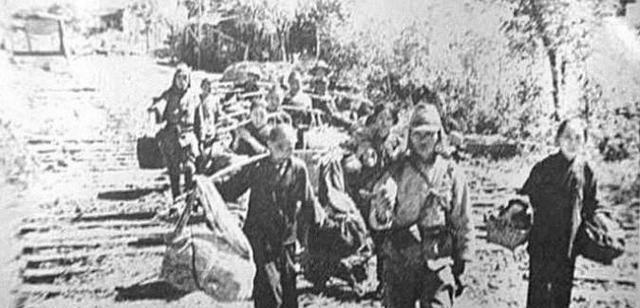The Japanese army implemented the "three lights" policy, why did it not dare to attack in the face of the Qiao family compound? The reason is shameful
The term "Three Lights Policy", first from the 1941 Liberation Daily, is a generalization of the Chinese side's sweeping policy carried out by the Japanese army in North China, and there is no word "three light policy" in the Japanese army's combat orders and operational terminology. However, in the japanese army's combat orders and war reports, words such as "ember annihilation operation" and "complete destruction" kept appearing. The so-called "ember annihilation battle" means that it is burned out and exterminated, and the killing of a person who has no left, the burning of a room that is not left, and the snatching of the light that does not leave anything. The initiator of this was Tada Jun, commander of the North China Front, and secondly, his successor, Okamura Ninji.

Under the "three lights" policy of the Japanese army that invaded China and exterminated humanity, in addition to the countless people suffering from poisoning, the countless cultural treasures accumulated by the Chinese nation for thousands of years were also destroyed, and many of the mansions of the great and powerful people became broken walls and decadent walls, and the Japanese army did not dare to rob the Qiao family compound. The Qiao family compound in Qi County, Shanxi Province, has been preserved intact until now and has never been demolished. This may be a miracle in China.
The Japanese army invading China implemented the "three lights" policy, so why didn't they dare to rob the Qiao family compound? Of course, this was not the conscience of the Japanese devils, nor was it the prestige of the Qiao family compound that shocked them, the reason was actually very shameful.
When the Japanese army invaded Shanxi that year, at first it did not plan to let go of the Qiao family compound, but when the descendants of the Qiao family hung an Italian flag at the door, the Japanese devils withdrew. Because Italy was an ally of Japan, the Japanese army thought that the Qiao family compound was protected by Italy, and the Japanese army did not dare to grab the Qiao family compound with the Italian flag.
So how did Joe's Italian flag come about? This is also thanks to Qiao Zhiyong. In 1900, when the Eight-Power Alliance invaded China, Yu Xian, the governor of Shanxi, killed foreigners in the Shanxi territory. Seven Italian nuns fled to the Qiao family compound, and Qiao Zhiyong looked at them pitifully and moved his heart of compassion, so he risked hiding them in his own silver vault, and when the storm passed, he used a cart carrying firewood and grass to pull them to Hebei and be saved.
Later, the rescued nuns reported the matter to the government, and the Italian government, in order to thank Qiao Zhiyong for the shelter provided to their citizens, gave the Qiao family an Italian flag, and it was this Italian flag that became the savior of the Qiao family compound during the War of Resistance Against Japan.